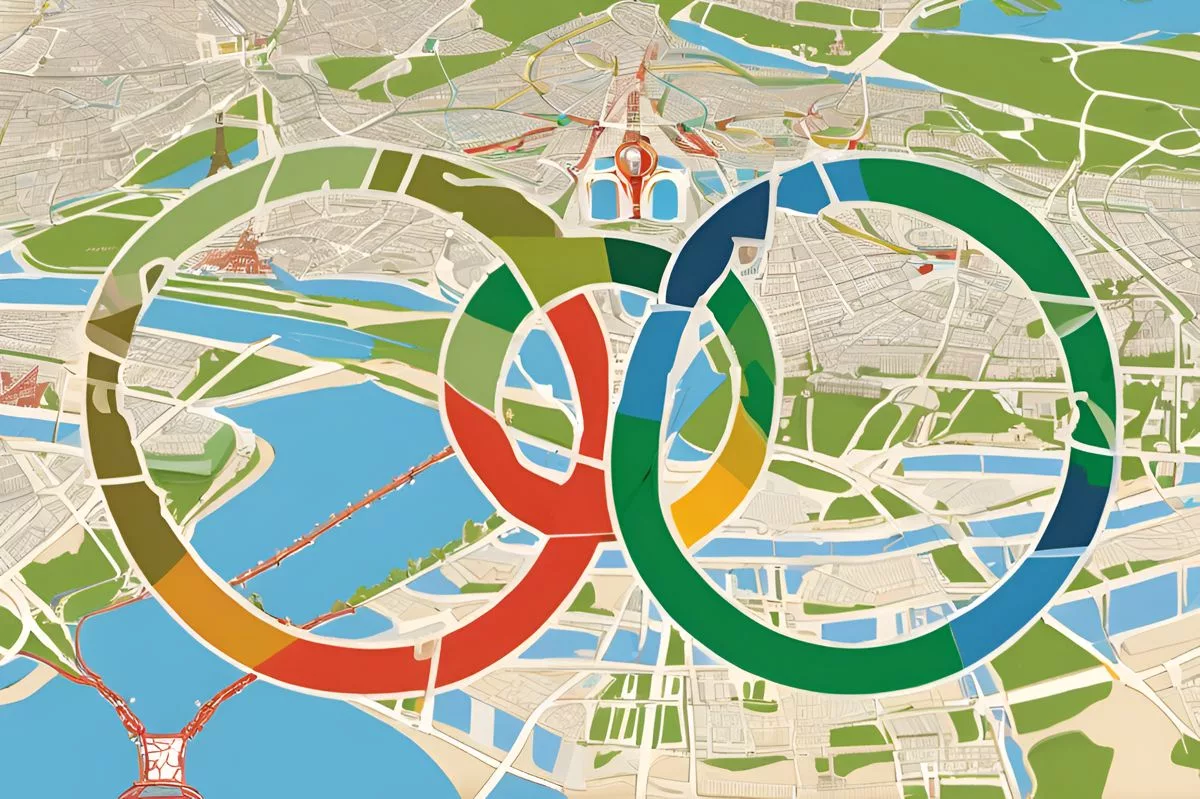The National Council of Provinces (NCOP) in South Africa recently made several appointments, including the election of Mr. Poobalan Govender as Deputy Chairperson. Other roles were assigned to various members, signifying the country’s dedication to good governance and democracy. These decisions were made during a plenary session and represent a mix of experienced and emerging leadership, demonstrating South Africa’s commitment to democracy and its continuous refinement of governance structures. The NCOP plays a vital role in fostering and preserving democratic governance in South Africa.
The Recent Developments in South Africa’s National Council of Provinces
Learn about the recent appointments made by the National Council of Provinces (NCOP) in South Africa, including the election of Mr. Poobalan Govender as Deputy Chairperson, and the roles assigned to various members. These appointments signify the country’s ongoing dedication to good governance and democracy.
A Prominent Event in the Political Arena
In the animated halls of South Africa’s National Council of Provinces (NCOP), a striking event unfolded on July 10, 2024. A unanimous consensus saw Mr. Poobalan Govender, a representative of KwaZulu-Natal’s Inkatha Freedom Party, elected as the Deputy Chairperson of the Council. This momentous decision, made during a plenary session, serves as a key turning point in Mr. Govender’s political journey.
Having been an active member of the KwaZulu-Natal Provincial Legislature since 2014, Mr. Govender has made substantial contributions to numerous committees. His work in Social Development, Economic Development, and Tourism has been notably influential.
A Continuation of Selfless Service
Mr. Govender’s political history is one marked by unwavering dedication to service. His recent elevation to the position of NCOP Deputy Chairperson is a representation of his ongoing commitment to public service. In his new position, Mr. Govender is required to support the Chairperson in fulfilling her responsibilities and provide strategic leadership, as well as step in whenever she is unavailable.
His new role will also see him representing Parliament in international multilateral forums and the NCOP in international bilateral forums, a responsibility that Mr. Govender is unquestionably prepared for.
During the very plenary session, the Council made other noteworthy appointments. Mr. Denis Ryder was elected as the House Chairperson for Committees and Oversight, a role that is crucial for upholding the checks and balances within the administrative structure.
Crucial Appointments and Responsibilities
Mr. Bhekizizwe Radebe was elected as the House Chairperson for International Relations and Members’ Support, another vital position for ensuring the efficient operation of the Council. Ms. Kolobe Regina Molokomme, a permanent Delegate to the NCOP representing Limpopo, was appointed as the Programming Whip, a role that involves overseeing the House’s program.
The duties of the NCOP are not solely limited to Council administration. The NCOP Chairperson, Ms. Refilwe Mtshweni-Tsipane, the Chief Whip, Mr. Kenneth Mmoiemang, and delegates, Adv Inkosi Mwelo Nonkonyana, and Mr. Nicholas Gotsell were chosen to serve on the Judicial Services Commission (JSC). The JSC, which is established by Section 178 of the Constitution, is entrusted with the task of selecting qualified individuals for judicial appointments and investigating complaints about judicial officers.
Representation in External Institutions
In addition to internal allocations, the Council also made designations to represent the Parliament in external institutions. Notable members, including Ms. Thoko Didiza, Mr. Mmoiemang, and Ms. Veronica Mente-Nkuna, will now represent the Southern African Development Community Parliamentary Forum (SADC PF), an organization devoted to human rights advocacy, gender equality, good governance, and transparency.
Members were also assigned to serve on the Magistrates Commission, an institution established under the Magistrates Act of 1993. These members included Mr. Solomon Patrick Mabilo, Mr. Makhi Feni, and Ms. Sylvia Nxumalo. Furthermore, demonstrating the Council’s commitment to its delegates’ welfare was the election of Ms. Mtshweni-Tsipane as a permanent trustee to serve on the Board of Trustees of the Political Office-Bearers Pension Fund.
The Impact of the Changes in the NCOP
The recent decisions made by the NCOP signify a mix of experienced and emerging leadership. These choices are a testament to South Africa’s democratic spirit, a nation that ceaselessly refines its governance structures for the betterment of its people.
The world of politics may seem like a complex labyrinth of procedures and appointments to those unfamiliar with it. However, it is crucial to remember that these strategic decisions form the backbone of democratic institutions. The NCOP plays a vital role in fostering and preserving democratic governance in South Africa.
Democracy Manifested in the NCOP
The NCOP’s chamber, the site where these crucial decisions are made, represents the country’s commitment to democracy. It is within these sacred walls that the fabric of South African democracy is continuously woven, decision by decision. Without a doubt, the recent alterations in the Council will further enrich South African governance’s dynamic tapestry.
In summary, the changes that have taken place in the NCOP are not merely a reorganization of positions. They signify a pledge to good governance, a tribute to South Africa’s robust democracy, and a promise of sustained growth and development. The decisions made by the NCOP indicate the country’s political sophistication, displaying an unwavering commitment to uphold the principles of democracy, transparency, and justice. South Africa continues to carve its unique path in history, one Council decision at a time.
1. What recent appointments have been made in South Africa’s National Council of Provinces (NCOP)?
The NCOP recently made several appointments, including the election of Mr. Poobalan Govender as Deputy Chairperson, and the assignment of various roles to other members.
2. Who is Mr. Poobalan Govender and what is his political history?
Mr. Poobalan Govender is a representative of KwaZulu-Natal’s Inkatha Freedom Party who has been an active member of the KwaZulu-Natal Provincial Legislature since 2014. He has made substantial contributions to numerous committees, particularly in the fields of Social Development, Economic Development, and Tourism.
3. What are the responsibilities of Mr. Govender in his new role as Deputy Chairperson of the NCOP?
As Deputy Chairperson, Mr. Govender is required to support the Chairperson in fulfilling her responsibilities and provide strategic leadership, as well as step in whenever she is unavailable. He will also represent Parliament in international multilateral forums and the NCOP in international bilateral forums.
4. What are some other noteworthy appointments made by the NCOP?
The NCOP also appointed Mr. Denis Ryder as the House Chairperson for Committees and Oversight, Mr. Bhekizizwe Radebe as the House Chairperson for International Relations and Members’ Support, and Ms. Kolobe Regina Molokomme as the Programming Whip. Additionally, several members were chosen to serve on the Judicial Services Commission and other external institutions.
5. What do these appointments signify about South Africa’s democracy?
The recent appointments signify South Africa’s dedication to good governance and democracy, as well as its commitment to continuously refining its governance structures. They demonstrate a mix of experienced and emerging leadership, and a steadfast commitment to upholding the principles of democracy, transparency, and justice.
6. What role does the NCOP play in South Africa’s democracy?
The NCOP plays a vital role in fostering and preserving democratic governance in South Africa. It is within the NCOP’s chamber that crucial decisions are made, representing the country’s commitment to democracy. The recent alterations in the Council will further enrich South African governance’s dynamic tapestry, demonstrating the country’s political sophistication and unwavering commitment to good governance.












